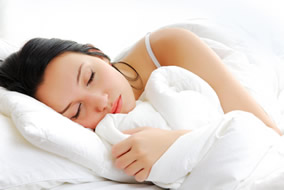This article is courtesy of PRWeb, please share your thoughts below…..
 Restless legs syndrome (RLS) involves uncomfortable sensations in the legs at night and an irresistible urge to move them, which can disturb sleep.
Restless legs syndrome (RLS) involves uncomfortable sensations in the legs at night and an irresistible urge to move them, which can disturb sleep.
People with restless legs syndrome (RLS) describe it as a tingling, aching, pulling, itching, cramping, or “creepy-crawly” feeling in the legs. No matter how it feels, restless legs syndrome can dramatically interfere with sleep, reports the May 2015 Harvard Men’s Health Watch.
“People come in describing insomnia, but they don’t put two and two together,” says Dr. John Winkelman, an RLS specialist at Harvard-affiliated Massachusetts General Hospital. “You have to make that connection and then address the restless legs, and that helps people sleep better.”
The sensations caused by RLS feel like they come from deep in the legs. They trigger an irresistible urge to move the legs. The symptoms typically start or get worse at night, and often disrupt sleep.
For men with infrequent or moderately bothersome symptoms, self-help efforts can reduce the symptoms of RLS and improve sleep. Dr. Winkelman suggests these strategies to his patients:
* Don’t drink caffeinated or alcoholic beverages, especially within several hours of bedtime.
* Don’t smoke or use other nicotine-based products.
* Before going to bed, massage the leg muscles, do gentle stretches, take a warm bath, or apply heating pads.
* Exercise every day, but not too close to bedtime.
* Schedule activities that require prolonged sitting or reclining in the morning rather than the afternoon.
If these don’t help, five FDA-approved medications are available for people with severe and frequent symptoms of RLS.
Read the full-length article: “When sleeplessness starts in the legs”
Also in the May 2015 Harvard Men’s Health Watch:
* Easing osteoarthritis without adding pills
* Soy and men’s health
* Smartphone apps for men’s health
* Probiotics for the colon
The Harvard Men’s Health Watch is available from Harvard Health Publications, the publishing division of Harvard Medical School, for $20 per year. Subscribe at http://www.health.harvard.edu/mens or by calling 877-649-9457 (toll-free).
